Specialist Wound Care
Complex Wounds Require Specialist Care
Complex wounds require more than just routine care—they demand specialized attention, advanced expertise, and innovative treatments to ensure optimal healing.
Patients with multiple chronic conditions such as diabetes, CHF/venous stasis, PVD, CKD/ESRD, or stroke paraplegia often experience painful, complex wounds that are challenging to treat. These wounds may include:

-
Acute skin injury
-
Burns (case by case)
-
Stage 2, 3, 4 or unstageable pressure injuries
-
Trauma wounds
-
Venous or arterial ulcers
-
Diabetic/neuropathy ulcers
-
Wounds requiring debridement
-
Cellulitis with open lesions
-
Wounds requiring NPWT/wound vac
(evaluate, initiate, and oversee )
-
Pressure injuries: Stage 2 (with education on prevention and progression), Stage 3, Stage 4, or unstageable
-
Surgical and traumatic wounds
-
Non-healing wounds
-
Pyoderma Gangrenosum
-
Full and Partial Thickness Wounds
-
Open Surgical Wounds
-
Hidradenitis Suppurativa
-
Type II Skin Tears or Greater: With 25% partial tissue loss or more
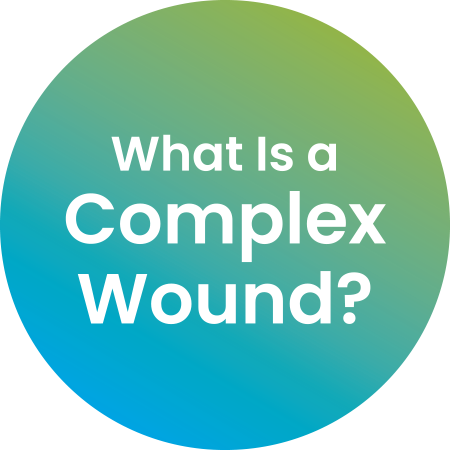
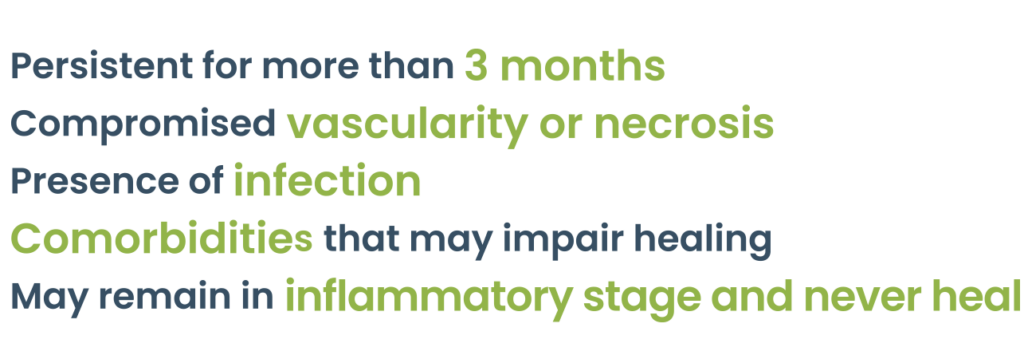
The Impact of Complex Wounds
Wounds not only limit mobility and quality of life but also pose serious risks, such as infections, hospitalizations, amputations, and even loss of life. Patients at Woundtech often face challenges tied to social drivers of health (SDoH), such as limited transportation, making multiple weekly medical appointments nearly impossible. Many of these patients, before discovering Woundtech, had lost hope that their wounds would ever heal.
There is Hope and Healing with Woundtech
96.5% wound healing rate for patients that completed treatment, exceeding the industry average of 92%
53% faster healing rate compared to
traditional wound care clinics
* Etiology Specific Variation in Comprehensive Healing Rate and Time to Heal 2014-2017: Arterial, Diabetic, Pressure and Venous Ulcers. Healogics®
* Fife CE, Carter MJ. Wound Care Outcomes and Associated Cost Among Patients Treated in US Outpatient Wound Centers: Data From the US Wound Registry. Wounds. 2012 Jan;24(1):10-7.
Complex chronic diseases add to the medical challenge of wound healing, requiring specialized expertise. At Woundtech, we specialize in treating chronic wounds by addressing the medical challenges caused by comorbidities. Our specialized providers understand each patient’s unique medical history and develop personalized care plans that integrate evidence-based treatment pathways, advanced procedures such as debridement, and our proprietary formulary of high-quality dressings and supplies.
Woundtech's Model of Care
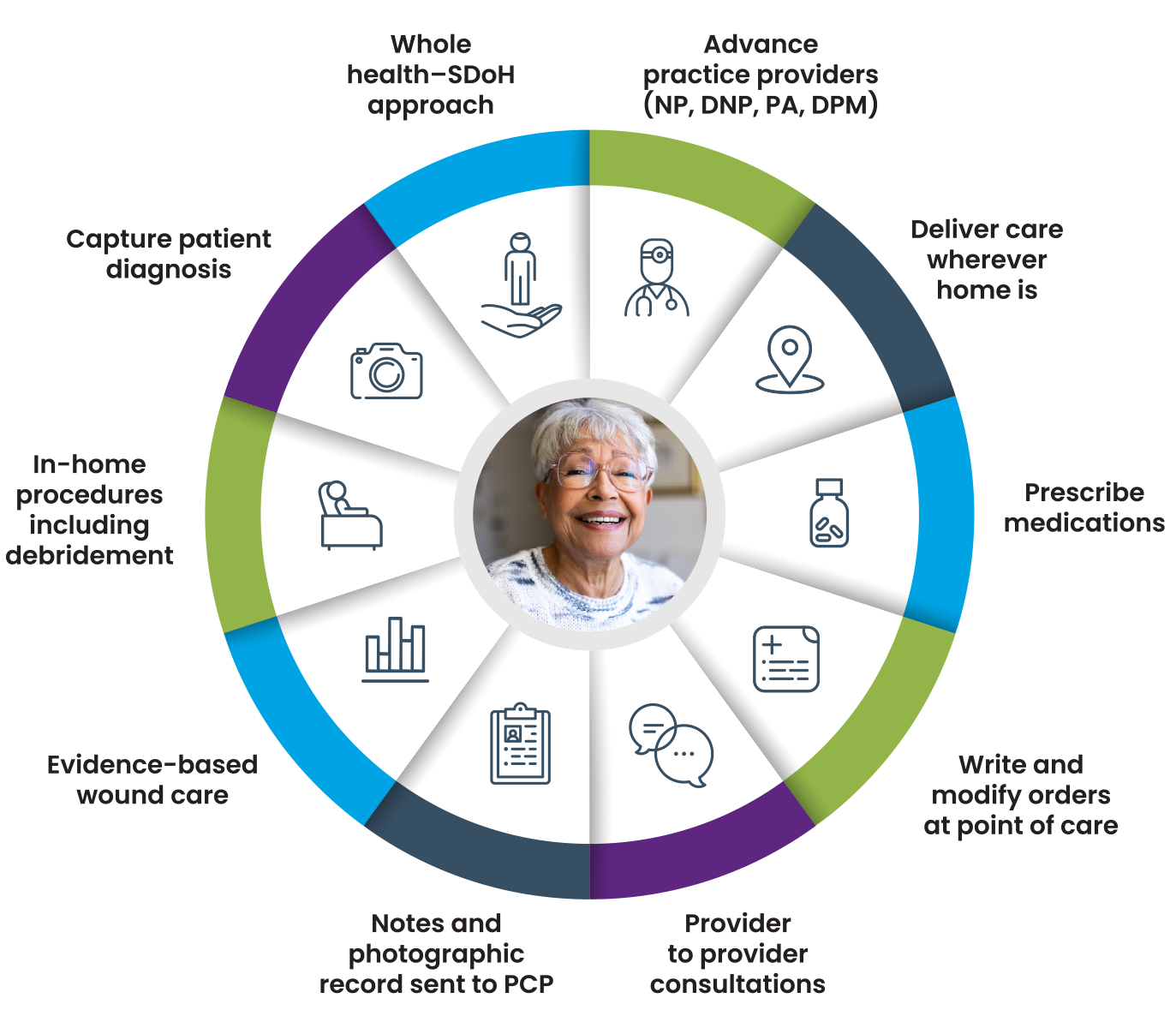
Our Goal is to HEAL the Wound
We focus on healing wounds, not just treating wounds. Our advanced practice providers (e.g., NP, PA, DNP, DPM) act as an extension of the patient’s primary care physician (PCP), focusing exclusively on wound care. They are empowered to write orders, oversee care, and deliver exceptional, targeted treatment.
PCPs partner with us because they can see the results and are kept informed throughout the healing process. We provide them weekly updates, including progress notes and photos, to ensure seamless communication while maintaining focus on the patient’s overall health and recovery.
Delivering care directly to patients also allows our providers to address broader needs, such as coordinating durable medical equipment (DME) and addressing challenges related to Social Drivers of Health (SDoH). This holistic approach enhances accessibility and ensures patients receive the support they need
Components of Our Care Model
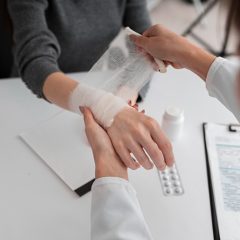
Advanced Treatment Techniques
Successful wound healing relies on the understanding of chronic, non-healing wounds and their root causes, a specific education that many providers do not have. Woundtech’s providers are trained in the latest wound care best practices, including debridement, advanced dressings, and negative pressure wound therapy (NPWT). These treatment modalities are all administered in the comfort of the patient’s home, ensuring convenience and accessibility.

Comprehensive Care Plans
Our providers are skilled in creating personalized care plans that take into account the patient’s medical history, wound type and progression, and underlying conditions that will impact the wound’s ability to heal. Our providers communicate with the patient’s PCP regarding their progress until the wound has fully healed and care can be smoothly transitioned back to them.

Preventing Downstream Complications
Effectively managing the risk of infection, hospitalization, and amputation is critical in treating complex wounds. Our providers are trained to identify early signs of complications and make the necessary interventions to prevent the need for more invasive treatments.
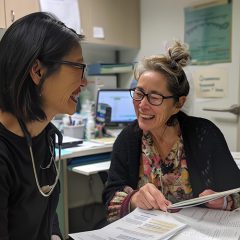
Patient Education and Support
Education is a cornerstone of effective wound care. Our providers play a key role in empowering patients and caregivers with knowledge about wound management at home, helping to improve clinical outcomes and prevent the development of additional complex wounds. This patient-focused approach ensures long-term success and a higher quality of life.

Faster, More Efficient Healing
Woundtech providers use proprietary technology, which supports clinical alerts and recommendations that assist in treatment. Our clinicians can write orders, perform wound debridement procedures onsite, and prescribe medications, expediting the treatment process and helping patients feel better sooner.

